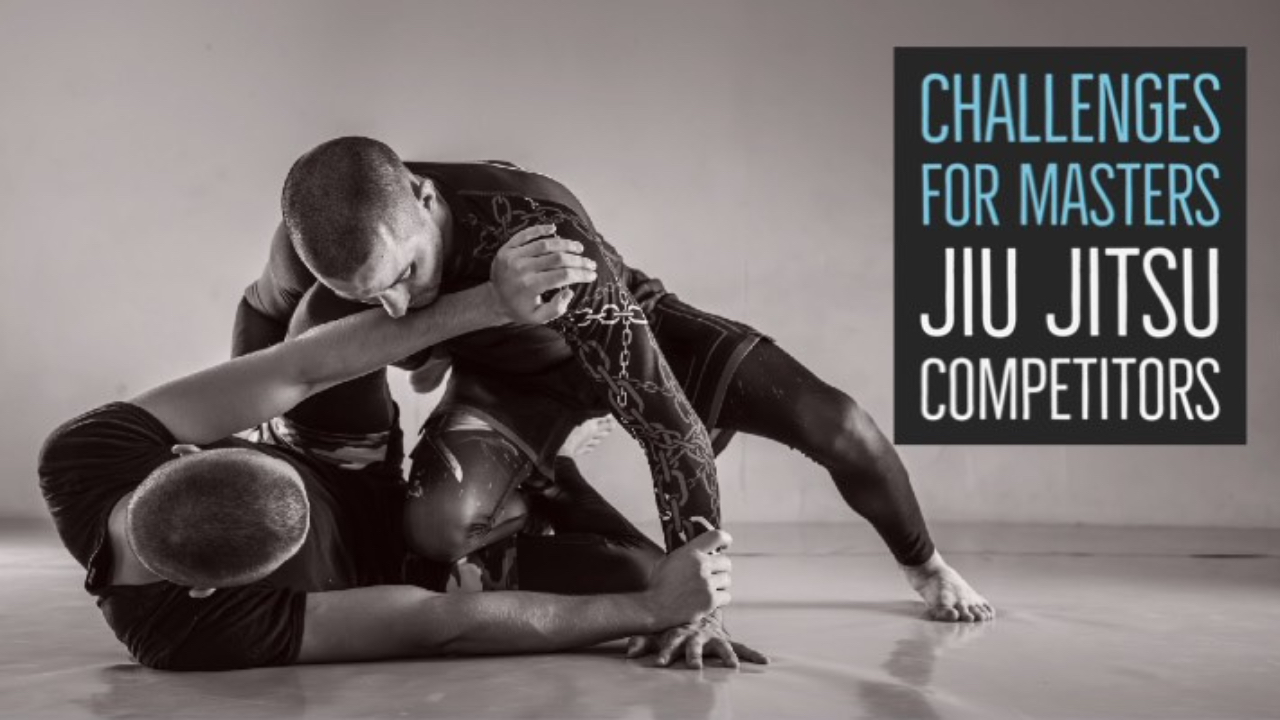
The Biggest Challenges for Masters Jiu Jitsu Competitors: Overcoming the Test of Time
Mastering the Art of Jiu Jitsu: Conquering Challenges at Every Turn
Jiu jitsu, the art of gentle submission, captivates practitioners of all ages and backgrounds. It is a martial art that demands strength, technique, and mental fortitude. While jiu jitsu competitions encompass various age divisions, masters jiu jitsu competitors, those who have attained a higher level of skill and experience, face unique challenges on their path to victory. In this article, we will explore the biggest challenges masters jiu jitsu competitors encounter, offering practical strategies to overcome these obstacles and thrive in the sport.
I. Age-Related Obstacles: The Unyielding Test of Time
As masters jiu jitsu competitors progress in their journey, one formidable opponent they must confront is time itself. Aging brings with it a set of physiological changes that can impact performance on the mat. However, with careful consideration and tailored approaches, these challenges can be surmounted.
-
Physical Conditioning and Recovery Maintaining optimal physical conditioning becomes increasingly crucial for masters competitors. As the body ages, it naturally undergoes changes such as decreased muscle mass, flexibility, and endurance. To overcome these obstacles, masters competitors must adopt a training regimen that addresses their specific needs. This may include incorporating strength and conditioning exercises to preserve muscle mass, flexibility training to maintain suppleness, and adequate recovery periods to prevent injuries.
-
Injury Prevention and Management Injuries are a part of any athletic pursuit, and masters jiu jitsu competitors are no exception. However, with age, the body becomes more susceptible to injury and slower to heal. Implementing injury prevention strategies, such as proper warm-ups, effective stretching routines, and listening to one's body, becomes paramount. Additionally, seeking professional guidance from physiotherapists or sports medicine specialists can aid in injury management and ensure a quicker return to training.
II. Adaptation: Navigating the Shifting Tides
In the dynamic world of jiu jitsu, adaptability is key. As masters competitors, practitioners must continuously refine their techniques and strategies to stay ahead of the game. Adapting to the ever-evolving landscape of jiu jitsu presents both mental and technical challenges.
-
Evolution of Techniques Jiu jitsu, like any martial art, undergoes constant evolution. New techniques, strategies, and approaches emerge regularly, necessitating masters competitors to stay updated and adapt their game accordingly. This requires a willingness to embrace change, attend seminars, study instructional videos, and seek guidance from experienced mentors.
-
Strategic Adjustments While technical proficiency is essential, masters competitors must also possess a strategic mindset. As they face opponents of varying ages and styles, understanding how to modify their approach becomes crucial. This may involve studying opponents' tendencies, analyzing their strengths and weaknesses, and tailoring game plans accordingly. Masters competitors need to be versatile in their techniques and possess the ability to adjust their strategies on the fly.
III. Mental Resilience: Overcoming Doubts and Self-Imposed Limitations
Competing in jiu jitsu requires not only physical prowess but also mental fortitude. Masters competitors face their fair share of psychological challenges, which can impact their performance and overall experience on the mats.
-
Self-Doubt and Confidence Regardless of age or experience, self-doubt can creep into the minds of masters competitors. They may question their abilities, compare themselves to younger opponents, or feel the weight of expectations. Developing a strong sense of self-belief, practicing positive self-talk, and celebrating personal progress can help combat these doubts and instill confidence in their abilities.
-
Goal Setting and Motivation As the years progress, masters competitors often redefine their goals and motivations in jiu jitsu. While winning competitions may still be a driving force, the journey itself, personal growth, and the love for the art become increasingly significant. Setting realistic goals, both short-term and long-term, and finding intrinsic motivation are essential for maintaining enthusiasm and dedication throughout the years.
Wrap-up:
In conclusion, masters jiu jitsu competitors face a unique set of challenges as they strive to excel in their discipline. From age-related obstacles that test their physical conditioning and recovery to the need for strategic adaptations in the ever-evolving world of jiu jitsu, these seasoned practitioners demonstrate the resilience and adaptability necessary for success. By embracing the test of time, staying proactive in injury prevention and management, adapting techniques and strategies, and nurturing mental resilience, masters competitors can continue to thrive in their jiu jitsu journey.
Citations:
- "Ageing and Exercise: Recommendations for Exercise Programming." World Health Organization. Link
- Smith, Andrew C., et al. "Jiu Jitsu Injury Survey: Perceived Prevalence and Severity of Injury." Orthopaedic Journal of Sports Medicine 9.1 (2021): 2325967120987390. Link
- Machado, R. G., et al. "The Aging Process: A Challenge to Judo Athletes." Journal of Aging and Physical Activity 25.2 (2017): 322-328. Link




